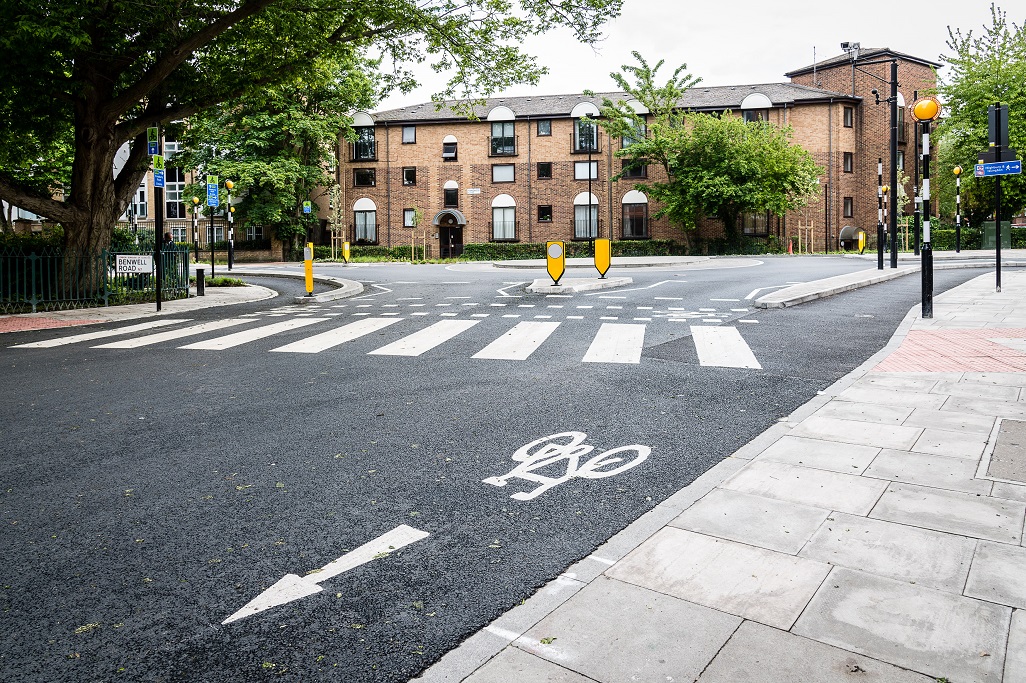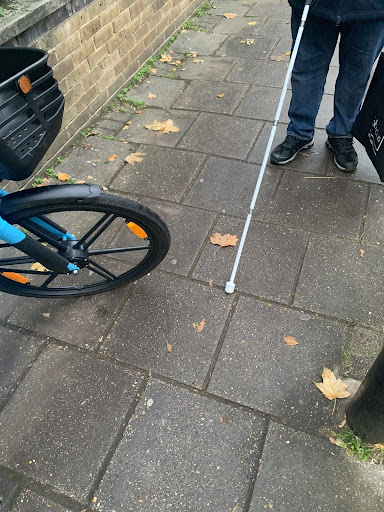Project Description:
The LBI Accessibility Audit project is divided into two components. The first one is a public realm accessibility audit of the Highbury New Park area within Islington, providing essential information on obstacles found on streets and pavements which would affect disabled people, taking a pan-disability perspective.
Project Type: Kick Starter
Theme: Cities for Life, Mobility, Accessibility
Mentor: Margarita Angelidou
Redefining how we work with residents to build a more equal Islington.
Islington Council in London, UK, ran an accessibility audit project, focused specifically in the Highbury New Park area. The project leads were Esther Craven and Hezi Yaacov-Hai from the Strategy and Engagement Team. They were supported by Islington Council colleagues from the Strategy and Engagement, Transport, and Inclusive Design teams.
We worked alongside Janet Jones from AccessAble, an organisation specialising in accessibility. The most significant involvement was that of participants – 12 disabled residents.
The project consisted of three main components to engage our residents in citizen science. The first was an inclusive design workshop, designed to educate, inform, and upskill participants on the technicalities of completing an accessibility audit. We further discussed what ‘lived experience’ meant to the residents, and how they might capture this. This contributed to a wider understanding of the council’s processes in approaching change to the local environment.

AccessAble designed a ‘walk-and-wheel-about’ route, in which participants navigated a section of Highbury New Park. During the second workshop, participants implemented their previous training to complete an accessibility audit, highlighting issues they faced in their local area. In addition, many residents employed a pan-disability approach, using the conversations and knowledge gained in the previous workshop. This enriched and consolidated our understanding of the key issues for residents.

The final workshop worked on understanding what an ‘accessible survey’ means to disabled residents. This was done with a particular focus on finding out what disabled residents need to be asked about when the council is considering improvements to the public realm. The outputs of this workshop ensure that we better understand people’s needs in terms of accessibility and safety and will inform how we do future accessibility audits.
The goal of this project was to change how Islington Council conduct accessibility audits. Embedding the lived experiences of disabled residents into structural changes in the borough will ensure that future audits are more effective, and genuinely cater to the needs of our residents. We hope to have amplified the experiences of disabled people in navigating the public realm and have promoted the necessity of inclusive design – both within the council and beyond.
IMPETUS significantly contributed to this project. The funding of €20,000 allowed us to invest the necessary funding, ensuring fully accessible and comfortable participation. For example, we were able to provide BSL interpreters, coordinate necessary transport, and recognise the contributions of our participants. Most beneficially, we had regular supervision and support from our mentor, Margarita. She has been incredibly helpful in guiding the project and providing experience in citizen science initiatives and recommendations. Undoubtedly the consistent support from IMPETUS contributed to the resounding success of the project.
Going forward, the information and experiences we have gathered will be analysed by our project team. This will form the basis of our thinking and inform future planning around Liveable Neighbourhoods. We hope that these findings will contribute to an increased effectiveness of future accessibility audits. This project has served as the first piece of engagement in an ongoing conversation between the council and disabled residents.




